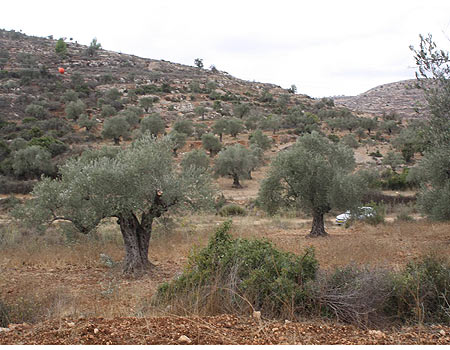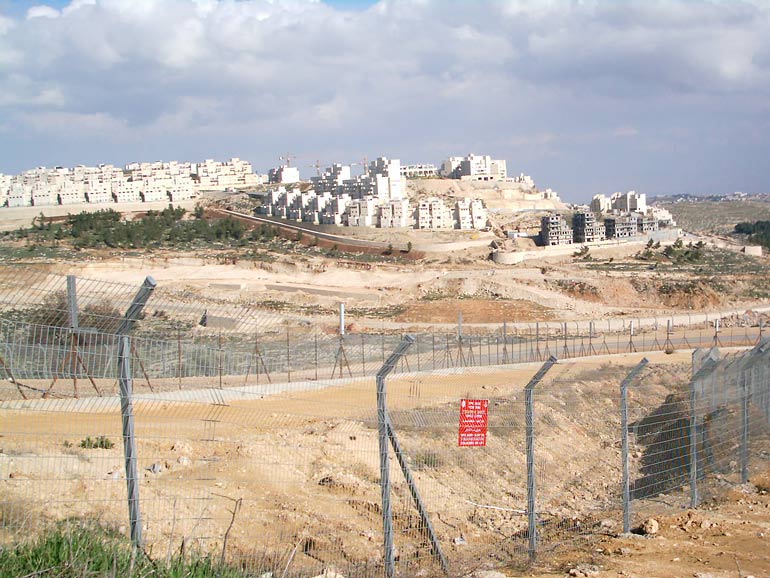On February 16th, 2011 I attended a public forum entitled “Palestinian Queer Activists Talk Politics” in San Francisco’s Mission District. More than 20 groups including the National Center for Lesbian Rights, Jewish Voice for Peace and the Middle East Children’s Alliance sponsored the forum, moderated by lesbian Chicana activist and writer Cherríe Moraga. The discussion featured three speakers:
- Abeer Mansour works for Aswat, a feminist queer Palestinian women’s group dedicating to “generat[ing] social change in order to meet the needs of one of the most silenced and oppressed communities in Israel."
- Sami Shamali, who resides in the West Bank, represents Al Qaws, which aims to develop a “Palestinian civil society that respects and adheres to human and civil rights and allows individuals to live openly and equally, regardless of their sexuality, sexual orientation and gender identity.”
- Haneen Maikey, based in Jerusalem, is Al Qaws’ director.
I found the panel particularly compelling in light of its location, just outside of Dolores Park –a popular go-to spot for queer women in the Bay Area, in one of the most gay-friendly cities in the entire world. Because of San Francisco’s internationally known gay community, it has been a primary target of Israel’s re-branding campaign aimed at improving the country’s image through the use of “Pinkwashing.” Pinkwashing is the attempt to justify Israel’s occupation of Palestine by portraying it as a progressive and democratic haven for LGBT individuals in direct contrast with the rest of the Middle East. It plays into a larger effort that aims to disparage Israel’s neighbors in order to justify the country’s existence as necessary by any means, relying on the image of a lone democracy barely surviving surrounded by violent, intolerant, women-hating, and generally backward societies.
Active within the Bay Area LGBT community, I have personally witnessed attempted pinkwashes. In one particular instance, a protest erupted after the California Supreme Court issued its ruling that Proposition 8 (the initiative defining marriage as between one man and one woman) was constitutional despite its prior decision legalizing same-sex unions. Within hours thousands of people took to the streets in protest. After a procession of speakers demanding equal rights for gay and lesbian couples, the rally closed with a rabbi who took the microphone in order to emphasize Israel’s commitment to gay rights and opposition to Prop 8, and to ask us to support the Jewish State because of it. A few activists including myself were disgusted and immediately left. However the majority stayed, and later that year I found myself hearing these same sentiments repeated.
Queer Palestinians, like Afghan and Iraqi women, have consistently found their discourse co-opted by neo-conservative hawks and progressives alike in order to justify war and occupation under the assumption that such actions will ‘liberate’ the oppressed. It is this cynical manipulation that the forum’s speakers work to disparage. Claiming their own voices and movement, queer Palestinian activists are clamoring to be heard and wish for their American brothers and sisters to spread their message. So what is it they have to say?
The clearest message resounding from all three speakers was that if one actually cares about LGBT rights within Palestine, one should be working to end the occupation. That Israel has cultivated a vibrant and open gay enclave is laudable, yet such accomplishments do not give the ‘Jewish State’ a free pass to violate human rights, including the rights of the gay Palestinians they allegedly care for. As Haneen dryly explained, “It doesn’t matter what the sexual orientation of the Soldier at a checkpoint is, whether he can serve openly or not. What matters is that he’s there at all.” Sami echoed the same sentiment, jibing that “the apartheid wall was not created to keep Palestinian homophobes out of Gay Israel, and there is no magic door for gay Palestinians to pass through.”
When pressed by an audience member as to which situation they would prefer, a perfectly egalitarian, queer-friendly society still under occupation or a free Palestine that still suffers from sexism, patriarchy and homophobia, the three became visibly angry. Abeer looked to the audience and asked, “Please raise your hand if you’d like to live one day under occupation,” before saying that occupied people cannot adequately address civil rights issues as they struggle for their very means of survival. Sami went on to contend that freedom transforms the mind, giving people the best opportunity to examine their previously held attitudes. Drawing on recent events in Egypt, he related that while sexual harassment is rampant within the country, in Tahrir square women remarked an utter absence of abuse during the mass protests. At the same time, if one does not wish to see the correlation between the unacceptably slow pace of social change and the increasing weight of the occupation, one cannot honestly contend that Israel's actions do anything to help the plight of Palestinian women/LGBT individials.
Each had their own story to tell about the intersection of queer identity and Palestinian identity, agreeing that Palestinian homosexuality had its own unique experiences. Yet for all three, the liberation of their country reigned supreme in their minds. The meeting ended with a standing ovation as the moderator boomed, “Clap if you understand that queers will never be free until Palestine is free.”
While their discussion did not focus solely on Israel’s abuse of LGBT liberation struggles in perpetuating conflict, I took away from it a deepened understanding of just how much more the West unfairly expects of Palestinians than anyone else. We expect Palestinians to not throw stones at the IDF jeeps who come to teargas their protestations against the illegal confiscation of their entire villages while we wouldn’t bat an eyelash at a man who shot a robber attempting to take his television set; We expect them to not elect representatives that reflect their religious sentiments though no one is surprised when the Christian Right attempts to influence our political system and we ally ourselves with the likes of Saudi Arabia; and we expect Palestinian society to wholly unshackle itself from the bonds of misogyny, racism and bigotry before we acknowledge their entitlement to basic human rights, despite our own shortcomings, including the reality that the realization of LGBT equality within the United States itself is relatively new and still imperfect. In all of the struggles for liberation many Americans support, including civil rights for African Americans, we have never required such a high standard of “goodness” before acknowledging a group’s basic humanity.
Abeer, Haneen and Sami represent a growing coalition of brave Palestinian youth focused on transforming entrenched attitudes from within while simultaneously undermining the imposed constraints of colonialism. Their work is an invaluable contribution to ending the occupation and transforming our understanding of Palestinian society. The message of these activists and their organizations deserves to be heard widely. Please do your part in spreading it to those who claim to care about gay rights. If you would like to attend one of their panels, you can find information for the remaining tour dates here.









